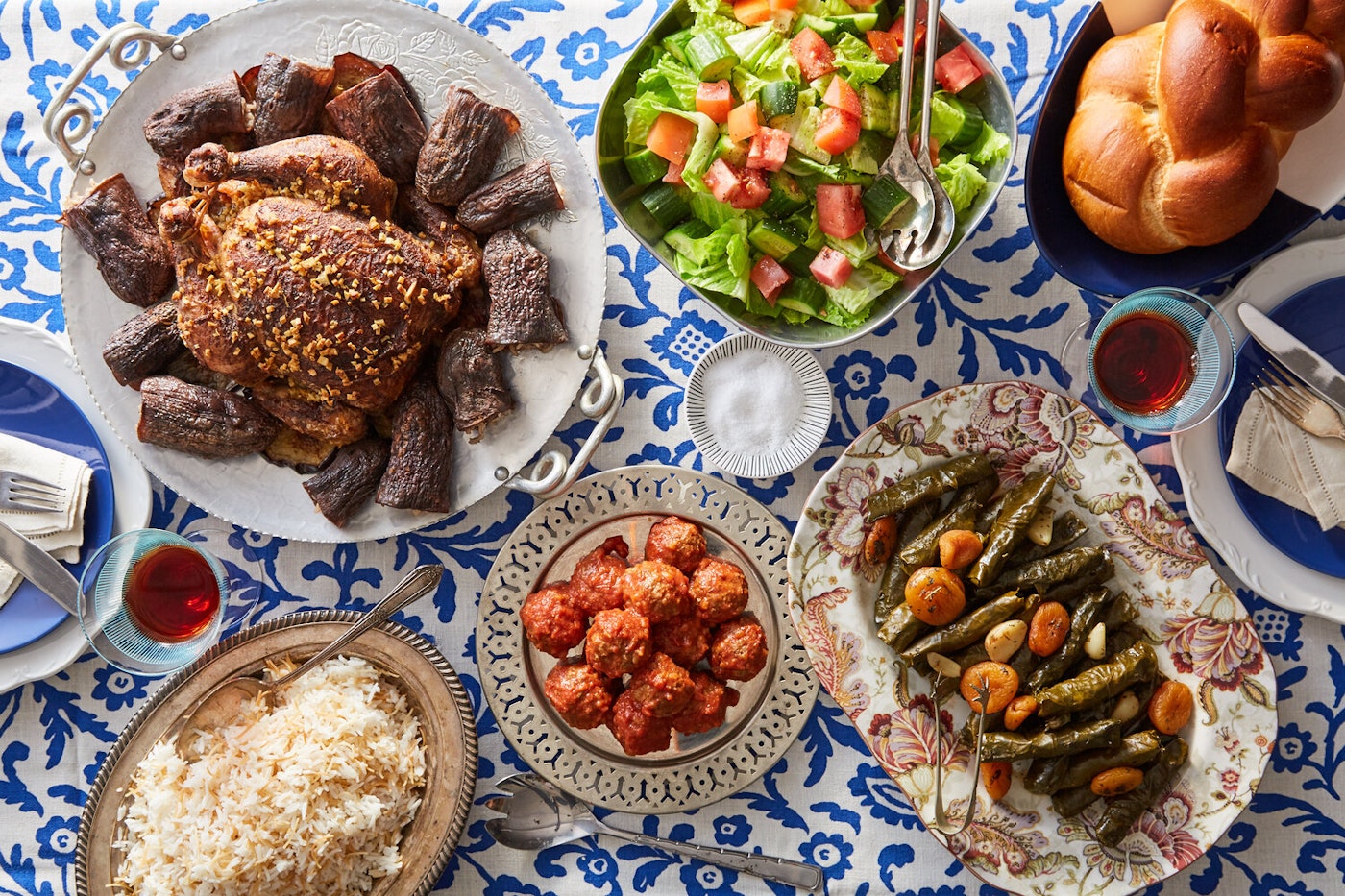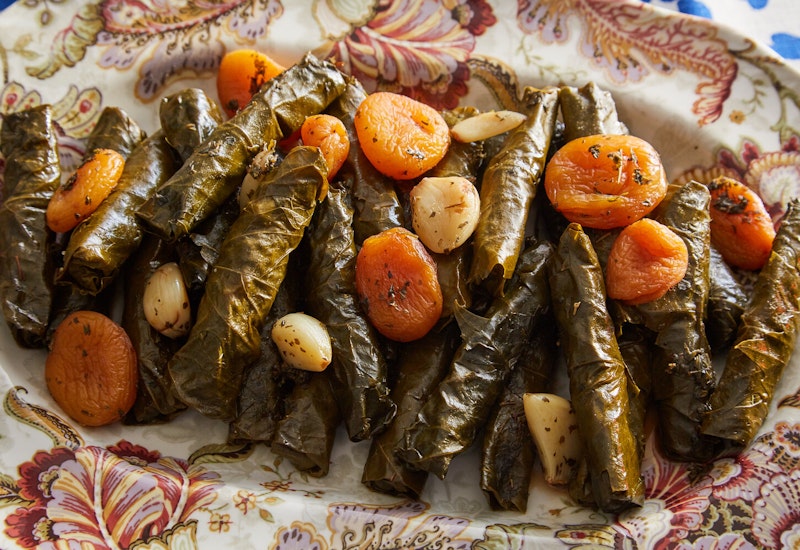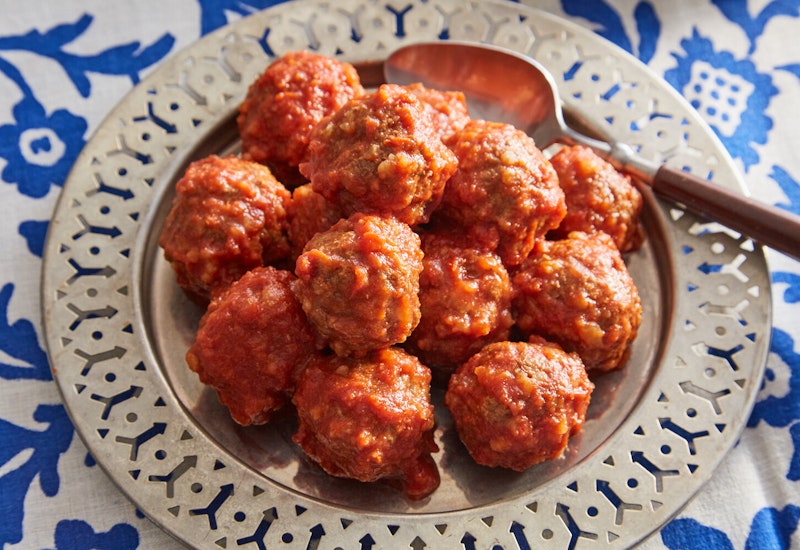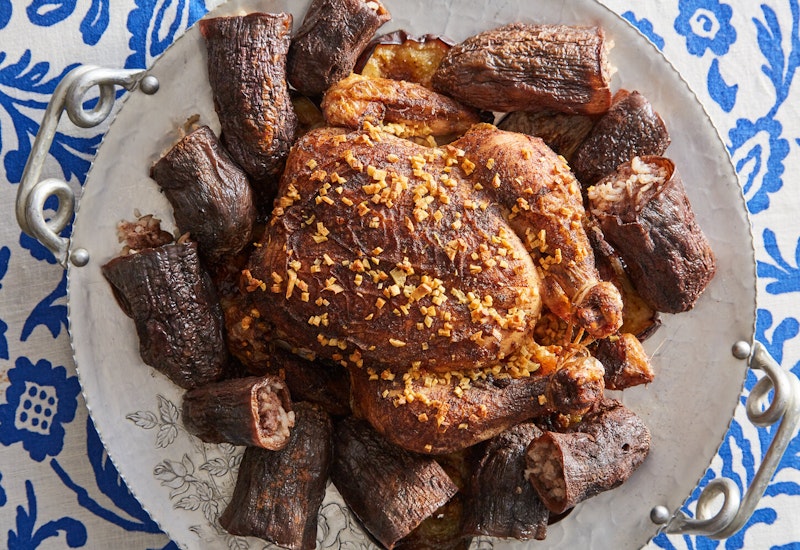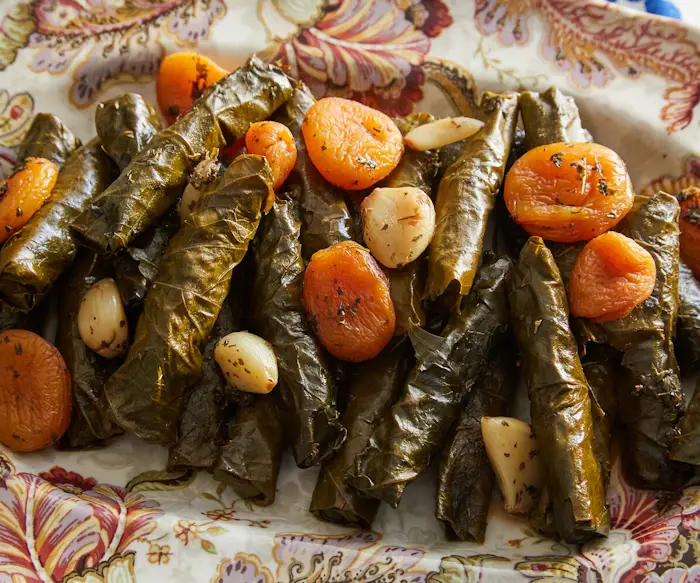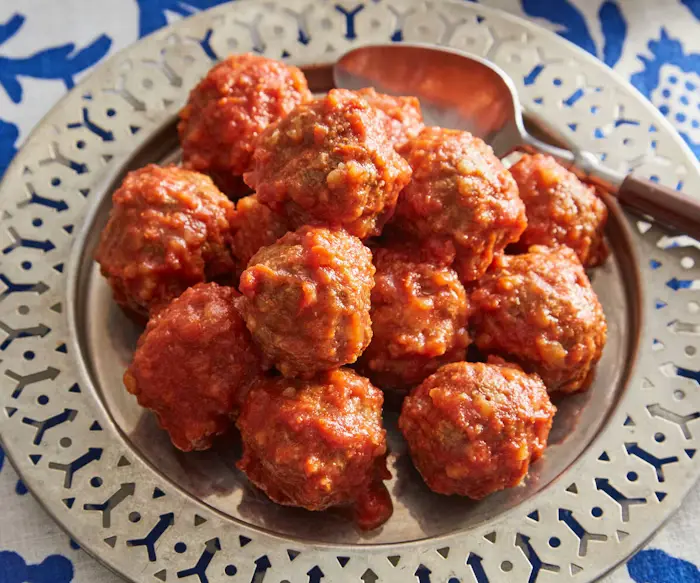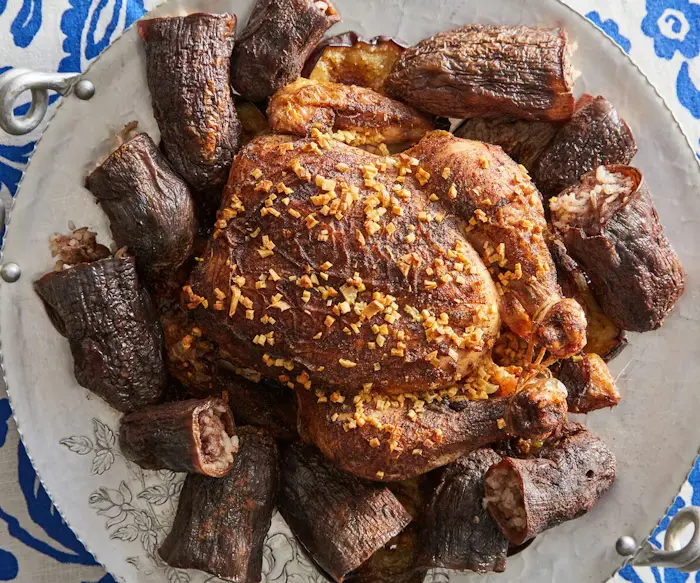When Charles Dabah’s grandmother Julie Chraime was alive, “the kitchen was her domain,” Charles, a caterer in Chicago, explains. “My grandmother would cook [Shabbat] dinner every single week and whoever would come, would come — and usually it was most of my family,” Charles says. Julie would cook for 20 plus family members for dinner in her home in Brooklyn and Charles would drive over with his parents from New Jersey for the feast.
Julie served a rotation of traditional Syrian recipes like lachmagine, a flatbread topped with meat and spices, chicken with stuffed eggplant, rice with sauces like kiftas or meatballs in a tangy tomato sauce, and salads. Yebra, or grape leaves stuffed with meat and rice and cooked slowly in a tangy sauce was one of the few dishes that made a regular appearance. “We came to expect [it] almost always,” Charles adds.
While yebra is traditional among Jewish families who trace their heritage to Aleppo, Charles explains that his family’s rendition is unique. Ou’, the sweet and tangy sauce that the stuffed grape leaves are cooked in, is most often made with tamarind, but in his family, it’s prepared with prunes. The change in the recipe likely came out of a time when the family couldn’t find tamarind. “A new recipe was born out of necessity, and we still use it because we couldn't imagine it any other way,” he adds.
Charles isn’t certain where his grandmother’s recipe originated, but it likely traces back to her family’s life in Aleppo. The family left Syria around 1920 for business opportunities and Julie was born in Istanbul in 1922, where the family lived for a few years before moving to Paris. In 1948, Julie moved to Manchester, England and met her husband, and ultimately moved to Brooklyn in 1951. The recipe was likely toted along during the journey, inherited from her mother or an aunt.
When he was young, Charles had no interest in trying yebra. He was intimidated by it. In retrospect, he asks: “What could be so scary, right? Perhaps, as with all foods that are stuffed, it is the unknown of what one is biting into that puts children off.” He still remembers the evening he finally tried it in middle school and “I fell in love with yebra hard.”
While Charles had a passion for eating the yebra, he didn’t have one for cooking it when he was young. And Julie didn’t care to share the kitchen, finding it hard to cook with others under foot, but Charles’s mom and his aunts learned the yebra recipe, making sure it was passed down to the next generation. In his community and specifically his family, Charles says, it’s uncommon for men to learn the family recipes. As an adult, he started to change that, learning Julie’s yebra from his mom, aunt and cousin, all of whom have kept Julie’s recipes alive since she passed away.
Today, Charles doesn’t make the recipe often, but he does when he’s feeling homesick. And, his family still serves it at large gatherings at his grandfather’s home in Brooklyn. Charles explains, “As the only member of my family living outside of the New York/New Jersey area, I don't get back as often as I would like for these big family dinners. But from my home in Chicago, I take comfort in the knowledge that my grandmother passed down to my mom, and that my mom continues to pass down to me.”
